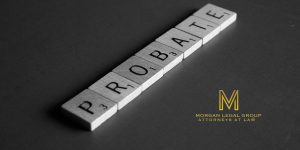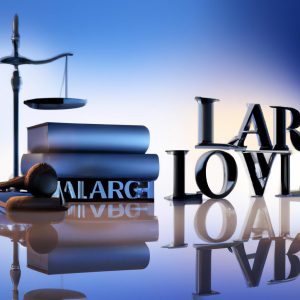As seasoned legal practitioners at Morgan Legal Group in the bustling metropolis of New York City, we understand the unique complexities and challenges faced by veterans when it comes to estate planning. In this article, we delve into the intricacies of veteran estate planning, offering insights and guidance to help those who have faithfully served our country ensure that their financial affairs are meticulously organized and secure for the future. From navigating benefits to crafting comprehensive estate plans, our expertise in estate planning, probate, elder law, Wills, and trusts allows us to provide the essential support veterans need to safeguard their legacies.
Maximizing Benefits for Veterans Through Strategic Estate Planning
At Morgan Legal Group, we understand the importance of strategic estate planning for veterans to maximize benefits and ensure their wishes are carried out efficiently. By taking a proactive approach to estate planning, veterans can protect their assets, minimize taxes, and provide for their loved ones. Our experienced legal team specializes in creating custom estate plans tailored to the unique needs and circumstances of veterans.
Our strategic estate planning services for veterans include:
- Maximizing benefits: We help veterans navigate complex benefit programs to ensure they receive the maximum benefits they are entitled to.
- Preserving assets: We develop strategies to protect veterans’ assets from creditors and ensure they are passed on to their chosen beneficiaries.
- Creating trusts: We assist veterans in establishing trusts to provide for their loved ones, plan for long-term care, and avoid probate.

Navigating VA Benefits and Medicaid Eligibility in Estate Planning
can be a complex and daunting task, but with the right guidance, veterans can ensure their assets are protected and their loved ones are provided for. When it comes to estate planning for veterans, understanding the intricacies of VA benefits and Medicaid eligibility is crucial. VA benefits such as pensions, disability compensation, and healthcare coverage can have a significant impact on an individual’s estate plan, while Medicaid eligibility can determine access to long-term care services and coverage for medical expenses.
In order to effectively navigate VA benefits and Medicaid eligibility in estate planning, veterans should consider the following key points:
- VA Benefits: Determine eligibility for VA benefits and understand how they can impact your estate plan
- Medicaid Eligibility: Assess requirements for Medicaid coverage and plan accordingly to ensure eligibility
- Asset Protection: Strategize ways to protect assets while still qualifying for VA benefits and Medicaid coverage
- Legal Assistance: Seek guidance from an experienced estate planning attorney to ensure your plan aligns with VA benefits and Medicaid regulations.
| Tip | Description |
|---|---|
| 1 | Understand VA benefit options |
| 2 | Review Medicaid eligibility criteria |
| 3 | Protect assets while planning for long-term care |
| 4 | Consult with an estate planning attorney |

Protecting Military Assets and Ensuring a Smooth Transfer to Heirs
is a crucial aspect of veteran estate planning. As an experienced estate planning attorney, I understand the importance of safeguarding your hard-earned military benefits and assets for future generations. By creating a comprehensive estate plan tailored to your specific needs, you can ensure that your military assets are protected and transferred to your heirs seamlessly.
One of the key considerations in veteran estate planning is identifying all of your military benefits and assets, including pensions, disability benefits, life insurance policies, and survivor benefits. By carefully reviewing and documenting these assets, we can develop a customized estate plan that maximizes their value for your heirs. Additionally, incorporating trusts and other estate planning strategies can help minimize tax implications and ensure that your military assets are distributed according to your wishes. Trusts can also provide ongoing protection and management of your assets for the benefit of your heirs. With careful planning and attention to detail, we can help you achieve peace of mind knowing that your military legacy will be preserved for future generations.
Creating Comprehensive Estate Plans Tailored to Veterans’ Unique Needs
In , it is crucial to consider various factors that may affect their estate. As experienced estate planning attorneys, we understand the importance of addressing these specific needs to ensure that veterans’ wishes are carried out effectively. From disability benefits to healthcare decisions, our team at Morgan Legal Group is dedicated to providing personalized solutions that cater to the individual circumstances of each veteran.
One key aspect of veteran estate planning is securing appropriate benefits and resources for the veteran and their beneficiaries. This may involve establishing trusts, setting up advance directives, or coordinating with VA officials to ensure that all entitlements are properly accounted for. By taking a proactive approach to addressing these matters, we can help veterans and their families navigate the complexities of estate planning with peace of mind. Trust in Morgan Legal Group to guide you through the process and create a comprehensive estate plan that meets your unique needs as a veteran.
| Benefits Inclusions: | Disability Benefits |
|---|---|
| Healthcare Decisions | |
| Entitlements |
Q&A
Q: What is veteran estate planning?
A: Veteran estate planning refers to the process of preparing for the distribution of one’s assets, taking into consideration specific aspects that are unique to veterans and their families.
Q: What are some important considerations for veterans when it comes to estate planning?
A: Some important considerations for veterans may include ensuring that their benefits and pensions are properly accounted for, addressing any disabilities or service-related injuries, and making arrangements for burial and memorial services.
Q: How can veterans ensure that their wishes are carried out through estate planning?
A: Veterans can ensure that their wishes are carried out by creating a detailed and legally binding estate plan, which may include a will, trust, power of attorney, and healthcare directive. By clearly outlining their wishes, veterans can provide peace of mind for themselves and their loved ones.
Q: Are there any specific benefits or resources available to veterans for estate planning?
A: Yes, veterans may be eligible for certain benefits and resources through the Department of Veterans Affairs (VA) that can assist them in the estate planning process. These may include assistance with long-term care planning, financial management, and legal advice.
Q: How can veterans start the estate planning process?
A: Veterans can start the estate planning process by consulting with a qualified estate planning attorney who has experience working with veterans. By discussing their specific needs and concerns, veterans can create a personalized plan that reflects their unique circumstances and priorities.
Final Thoughts
In conclusion, veteran estate planning is a crucial step in ensuring that your legacy is protected and your loved ones are provided for. By taking the time to properly plan and organize your affairs, you can help alleviate stress and uncertainty for your family during a difficult time. Remember, it’s never too early to start planning for the future. So, whether you’re a veteran yourself or you have a loved one who served, consider reaching out to a professional to help guide you through the process. Your future self and your family will thank you for it.
 Veteran Estate Planning: Protecting Those Who ServedOur brave and selfless veterans have served our country with pride and honor, sacrificing their own well-being to protect our freedom. It is our duty to show them the same level of care and respect by ensuring their assets and legacy are protected through proper estate planning.
Veteran Estate Planning: Protecting Those Who ServedOur brave and selfless veterans have served our country with pride and honor, sacrificing their own well-being to protect our freedom. It is our duty to show them the same level of care and respect by ensuring their assets and legacy are protected through proper estate planning.
Veterans may face unique challenges when it comes to estate planning due to their special benefits, medical needs, and possible service-related disabilities. This can make the process of planning for the future overwhelming and confusing. That’s why it’s important for veterans and their families to understand the importance of veteran estate planning.
What is Veteran Estate Planning?
Veteran estate planning is a type of estate planning specifically designed to address the needs of those who have served in the military. It involves creating a comprehensive plan for the distribution of assets, as well as making arrangements for medical care and disability benefits.
Benefits of Veteran Estate Planning
There are numerous benefits to creating a veteran estate plan. Here are some of the most important ones:
1. Protecting Your Assets
As a veteran, you may have accumulated valuable assets, including a home, investment accounts, and government benefits. With proper estate planning, you can ensure that these assets are distributed according to your wishes after your passing. This also helps to prevent potential legal disputes among family members.
2. Providing for Your Family
Estate planning allows you to designate beneficiaries for your assets, ensuring that your loved ones are taken care of after your passing. This is especially important for veterans who may have dependents who rely on their income or benefits.
3. Planning for Medical Care
Veterans may have unique medical needs due to their service-related injuries or disabilities. With a veteran estate plan, you can specify your healthcare wishes and designate a trusted person to make medical decisions on your behalf if you become unable to do so.
4. Managing Disability Benefits
Many veterans receive disability benefits from the Department of Veterans Affairs (VA). Without proper estate planning, these benefits may be distributed to unintended recipients or interrupted in the event of your passing. By including specific provisions in your estate plan, you can ensure that your benefits are protected and continue to support you and your loved ones.
Practical Tips for Veteran Estate Planning
Here are some tips to help you as you begin the estate planning process as a veteran:
1. Research Your Benefits
It’s important to have a thorough understanding of the benefits you and your dependents are entitled to as a veteran. This includes pensions, life insurance, and medical benefits. This knowledge will help you make informed decisions when creating your estate plan.
2. Consult with an Experienced Estate Planning Attorney
Estate planning can be a complex process, especially for veterans with unique needs. Consulting with an experienced estate planning attorney who has expertise in veteran estate planning can ensure your plan is tailored to your specific situation.
3. Consider Setting Up a Trust
A trust is a legal entity that can hold and manage your assets, allowing them to be distributed according to your wishes after your passing. This option is beneficial for veterans with dependents who may need long-term care or for those who want to protect their assets from potential creditors.
4. Review and Update Regularly
As your life evolves, your estate plan should evolve with it. It’s important to regularly review and update your plan to ensure it reflects your current wishes and circumstances.
Firsthand Experience
Beth, a Vietnam War veteran, never thought much about estate planning until she was diagnosed with a terminal illness. She had no will or estate plan in place and was overwhelmed by the thought of making important decisions while dealing with her illness.
With the help of her attorney, Beth was able to create a veteran estate plan that addressed her medical and disability needs, provided for her children, and protected her assets. She expressed immense relief knowing that her family would be taken care of after her passing and that her assets would be distributed according to her wishes.
In Conclusion
Estate planning is a vital step for all individuals, but it is especially important for veterans. By creating a solid veteran estate plan, you can ensure your assets and legacy are protected, and your loved ones are provided for after your passing. If you are a veteran or have a veteran in your family, it’s never too early to start planning for the future. With proper guidance and preparation, you can have peace of mind knowing that your wishes will be carried out.






